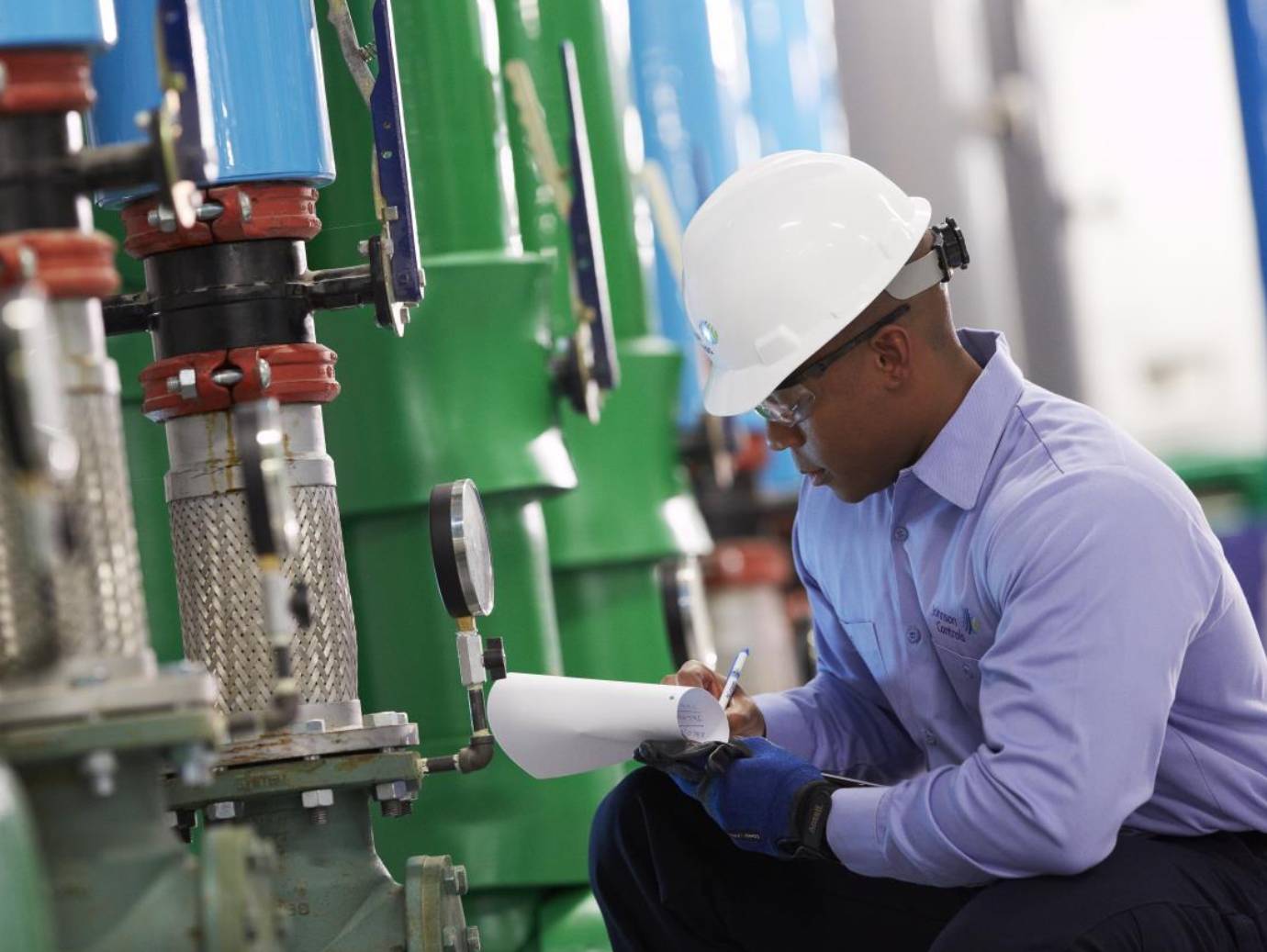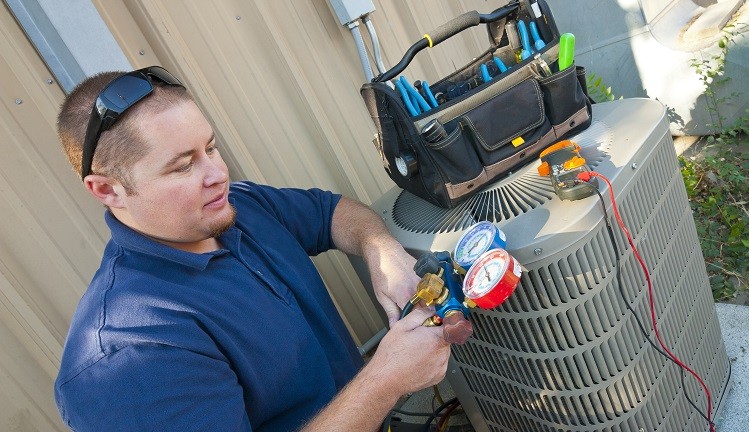Trusted Air Conditioning Contractor for Your Cooling Needs
Trusted Air Conditioning Contractor for Your Cooling Needs
Blog Article
A Thorough Take A Look At A/c Providers and Their Influence On Power Efficiency and Price Cost Savings
The duty of cooling and heating services in enhancing power efficiency and achieving price financial savings is extra important than ever, as businesses and homeowners seek sustainable remedies in a progressively eco-conscious globe. With technological innovations like clever thermostats and high-efficiency components, the possibility for enhancing system efficiency is large. Yet, real influence of these technologies depends mainly on normal maintenance and proactive issue monitoring. As we discover the elaborate connection between cooling and heating systems and functional prices, consisting of the shift towards ecologically pleasant alternatives, the inquiry arises: just how can these strategies be successfully implemented to make best use of both environmental and economic benefits?

Value of HVAC Equipments
HVAC systems are a crucial element of modern buildings, playing an important function in preserving comfortable and healthy indoor settings. These systems, encompassing heating, air, and ventilation conditioning, are important for controling temperature level, moisture, and air high quality, consequently making certain the well-being of passengers. Reliable a/c systems contribute dramatically to developing an optimum indoor climate, which is critical for both commercial and household rooms.
In industrial buildings, a/c systems are important to supplying a risk-free and effective atmosphere. By managing indoor environment problems, these systems assist stop the growth of mold and mildew and the spread of air-borne contaminants, therefore guarding the health and wellness of customers and employees. Additionally, in domestic setups, a/c systems improve living conditions by using consistent thermal convenience and boosting indoor air top quality, which is important for overall wellness.
Additionally, the layout and upkeep of a/c systems have a direct influence on energy consumption and operational costs. Properly designed and kept systems can significantly reduce power usage, bring about decreased energy expenses and a smaller carbon footprint. The effectiveness of these systems thus plays a crucial function in promoting sustainability and power conservation within structures, highlighting their relevance in the modern building landscape.
Developments in HVAC Technology
Development in a/c modern technology is revolutionizing the way structures take care of interior climates, introducing a brand-new era of effectiveness and control. Current developments have concentrated on enhancing power intake while enhancing customer convenience. One noteworthy advancement is the assimilation of smart thermostats, which utilize synthetic intelligence to find out occupancy patterns and change temperature levels as necessary, minimizing unneeded power usage.
Variable Cooling Agent Flow (VRF) systems represent another considerable jump forward. These systems permit exact temperature level control in different zones of a structure, enhancing convenience and minimizing power waste. VRF technology is especially beneficial for large business spaces, providing adaptability and scalability.
Additionally, the arrival of Net of Points (IoT) gadgets has transformed heating and cooling systems into interconnected networks efficient in real-time information collection and evaluation. This connection allows predictive maintenance, making certain systems run at peak effectiveness and decreasing unanticipated downtime.
Furthermore, innovations in materials and design, such as the use of high-efficiency coils and compressors, have actually boosted total system performance - Heating Contractor. The fostering of eco pleasant refrigerants also emphasizes the market's commitment to sustainability
These technological developments are essential in lowering operational expenses and environmental effect, establishing new criteria for constructing climate management.
A/c Upkeep and Efficiency
Making certain optimum performance of HVAC systems extends past technical improvements; it additionally pivots on efficient maintenance methods. Normal upkeep is important for sustaining performance, minimizing power usage, and prolonging the life expectancy of HVAC systems. The main objective is to make certain that all components function at their peak capacity, therefore lessening power wastage and keeping consistent indoor convenience degrees.
Regular upkeep tasks, such as cleaning or changing air filters, inspecting cooling agent levels, and inspecting ductwork for leaks, are vital for avoiding unneeded strain on the system. Clogged up or dirty filters can obstruct airflow, causing the system to function tougher and consume even more energy. Furthermore, insufficient cooling agent levels can decrease cooling down efficiency, causing higher operational expenses.
Additionally, regular inspections by qualified experts can determine possible concerns prior to they intensify into pricey fixings or system failures. These evaluations often include checking electrical connections, adjusting thermostats, and making sure the total stability of the HVAC system. By resolving minor problems early, organizations and homeowners can prevent unanticipated malfunctions and improve energy performance.
Cost-Effective A/c Solutions
For those wanting to get one of the most out of their air, ventilation, and heating conditioning systems without damaging the financial institution, checking out cost-efficient cooling and heating services can make a considerable distinction. One immediate measure is to buy programmable thermostats, which enable individuals to establish details temperature levels for different times of the day, maximizing energy usage and decreasing unneeded consumption. By automating temperature changes, home owners can accomplish websites significant cost savings on power expenses.
Normal upkeep is an additional important element of cost-effective heating and cooling administration. Ensuring that filters are cleansed or changed frequently, ductwork is secured, and units are serviced by experts can stop costly repairs and improve system long life. Preventive upkeep not only maintains system effectiveness yet additionally assists in preventing unexpected failures that can result in pricey emergency situation repairs.
Additionally, retrofitting existing systems with energy-efficient parts, such as variable rate motors or high-efficiency compressors, can be a sensible financial investment. These upgrades enhance operational efficiency, lower power usage, and can frequently be applied at a fraction of the expense of a full system replacement.
Ecological Effect Reduction
Decreasing the ecological effect of HVAC systems is crucial in today's quest of lasting living. Heating and cooling systems are considerable factors to power consumption, making up almost 40% of energy use in industrial buildings. This power demand typically counts on nonrenewable fuel sources, leading to greenhouse gas exhausts and ecological deterioration. Transitioning to extra effective systems, such as those using renewable resource resources, can significantly reduce these impacts.
Technological developments in heating and cooling design and operation, including the integration of wise thermostats and energy-efficient heatpump, are pivotal in decreasing carbon footprints. These developments permit enhanced energy use, lessening waste and enhancing total system performance. In more information addition, embracing routine upkeep methods guarantees a/c systems operate at peak performance, more curtailing unnecessary power usage.
In addition, making use of eco-friendly cooling agents is essential, as standard refrigerants, like CFCs and HCFCs, have actually been phased out due to their ozone-depleting residential properties. Modern choices, such as hydrofluoroolefins (HFOs), offer reduced ecological threats, lining up with worldwide ecological procedures. By embracing these sustainable techniques, cooling and heating solutions can play a transformative duty in lowering ecological effects, advertising energy efficiency, and cultivating a much more sustainable future.
Conclusion

Furthermore, the style and upkeep of Heating and cooling systems have a straight impact on energy usage and functional costs. Normal upkeep is essential for sustaining effectiveness, reducing energy usage, and prolonging the life span of A/c systems. HVAC systems are significant factors to energy consumption, accounting for virtually 40% of power use in commercial structures. Furthermore, embracing routine upkeep practices ensures Heating and cooling systems run at peak efficiency, further reducing unnecessary energy usage.
The shift to ecologically friendly Cooling and heating systems additionally decreases functional prices and promotes sustainability. (Heating Contractor)
Report this page